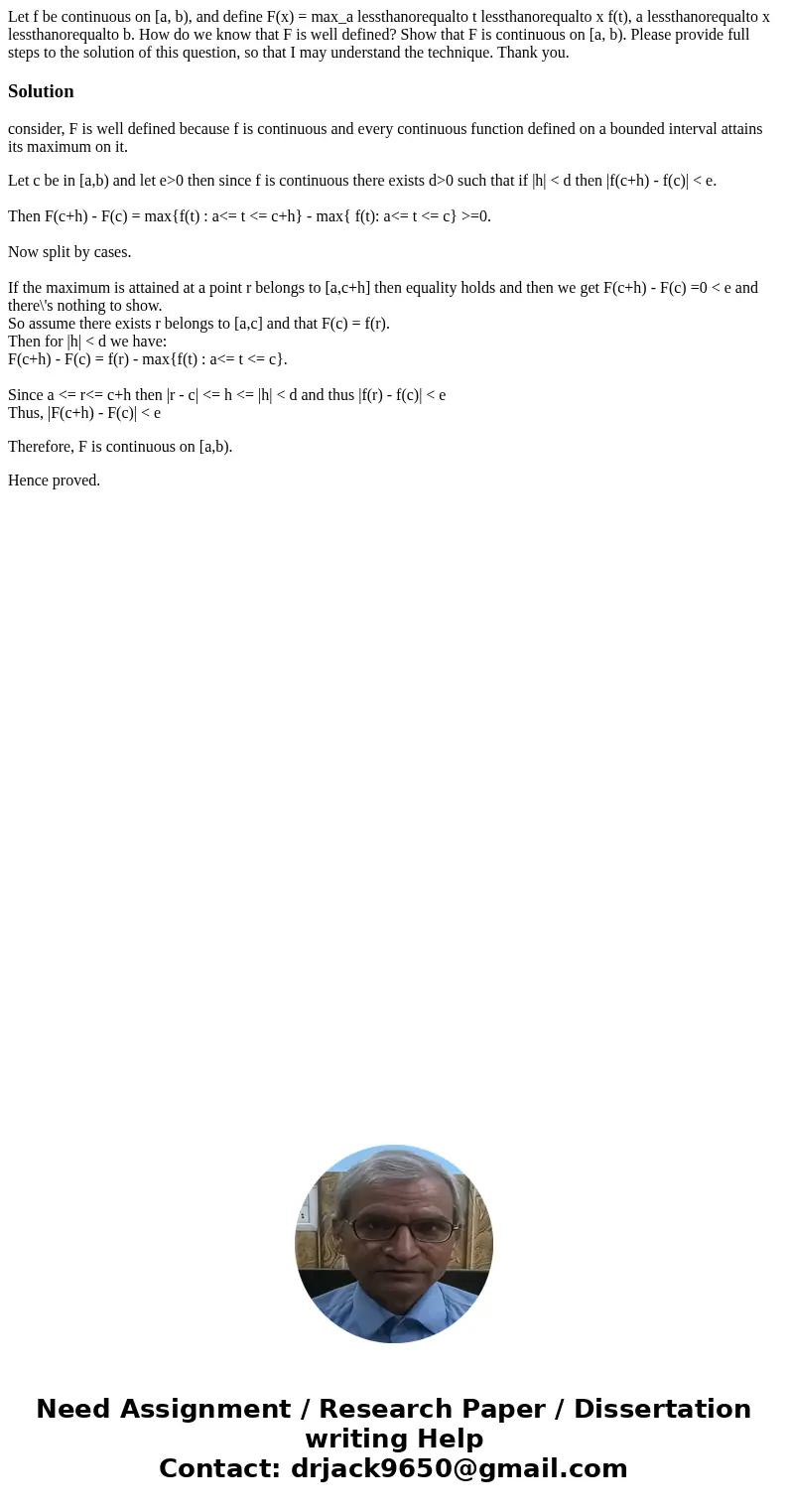Let f be continuous on a b and define Fx maxa lessthanorequ
Solution
consider, F is well defined because f is continuous and every continuous function defined on a bounded interval attains its maximum on it.
Let c be in [a,b) and let e>0 then since f is continuous there exists d>0 such that if |h| < d then |f(c+h) - f(c)| < e.
Then F(c+h) - F(c) = max{f(t) : a<= t <= c+h} - max{ f(t): a<= t <= c} >=0.
Now split by cases.
If the maximum is attained at a point r belongs to [a,c+h] then equality holds and then we get F(c+h) - F(c) =0 < e and there\'s nothing to show.
So assume there exists r belongs to [a,c] and that F(c) = f(r).
Then for |h| < d we have:
F(c+h) - F(c) = f(r) - max{f(t) : a<= t <= c}.
Since a <= r<= c+h then |r - c| <= h <= |h| < d and thus |f(r) - f(c)| < e
Thus, |F(c+h) - F(c)| < e
Therefore, F is continuous on [a,b).
Hence proved.

 Homework Sourse
Homework Sourse